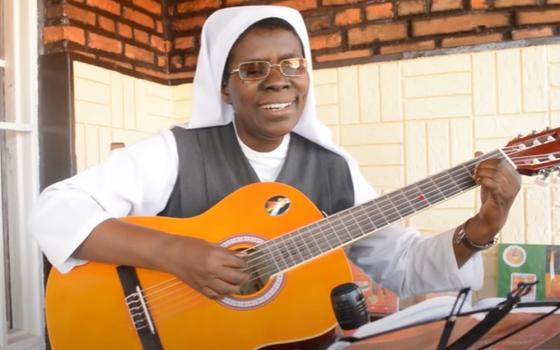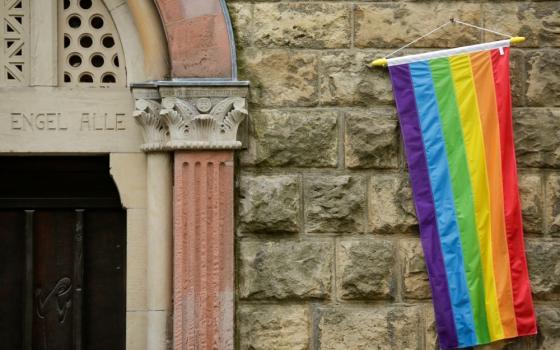Pope Francis recently spoke with Italian bishops regarding their call to service within the community. He made clear his stance toward being a bishop when he said, "We are not masters over persons. We should be 'models' for the flock."
The Catholic World Report gives us an insight into Francis' understanding of authority and hierarchy. Chapter 21 of the Gospel of John serves as the framework for Francis' remarks about bishops. In order to feed Jesus' lambs, one must first love Jesus. He makes clear that bishops are not meant to be the "expressions of a structure or an organizational necessity." They are, rather, to be signs of the presence of the risen Christ.
There is a great eagerness to categorize the papacy of Francis. What significance might there be in Francis' remarks to the Italian bishops? First, it is clear he attaches great importance to the role of bishop, including insisting on seeing himself as and acting as Bishop of Rome. I believe the implication is pretty clear that bishops need to act differently from the way many of them act today. Maintaining an episcopal distance from one's flock is not acceptable. Intimate contact with the sheep is required. It is not OK to operate simply by issuing decrees for the faithful to follow. The bishop's role is not one of judgment but of listening to the flock and seeking to understand what they face in their day-to-day lives. The bishop must reach out even to those beyond his flock with love and concern.
There is great temptation to extrapolate as to the impact Francis will have on the church going forward. Do we have the reincarnation of Pope John XXIII? Are the church windows about to be opened once again? As we celebrate the 50th anniversary of John XXIII's death, are we about to see the kinds of dramatic changes that we saw in the immediate aftermath of the Second Vatican Council?
Caution is certainly in order. What we can say unequivocally is that the rhetoric has changed, and this change is likely to be permanent. Pope Francis seems unalterably committed to the poor, living a simple life, and mingling in an intimate fashion with his flock. He certainly intends for his clergy to truly live as good shepherds to the sheep. He has little use for distinctions of rank or exercising authority as some sort of leverage over the faithful. These are not small changes. They are significant and are likely to change the way bishops around the world exercise power as they attempt to model themselves after the current bishop of Rome.
The big question is whether or not there will be more. Clearly, we just don't know. So far, the only substantive issue Francis has dealt with is the investigation of women religious. He chose to allow the investigation to move forward. He also did not provide the nuns with an audience to speak directly to him. This decision was very disappointing and probably indicates he is not likely to change activities ongoing in the church.
On the other hand, he has named a group of cardinals from around the world to keep him informed and advise him about how to address major issues facing the church. He is, therefore, definitely interested in receiving counsel from others and not operating simply in an arbitrary fashion. Hopefully, this interest will extend to receiving counsel from others in the church to include the laity and women and even important and extensive contact with those outside the church. Changes in management practices at the Vatican, in the Curia and throughout the church will be the first sign that we can expect concrete change from the Francis papacy.
Is it possible these changes could extend to looking at established practices in the church? Could we see an expansion of the use of general absolution, especially at Christmas and Easter? Will there be serious exploration of opening up the clergy to a married priesthood and even female deacons? Will there be at least a different and more conciliatory tone related to issues such as same-sex marriage and divorce? In that regard, the church's response so far to the recent Boy Scouts' decision to admit openly gay individuals is encouraging.
There is a very real danger of outsized expectations, but there is also a genuine excitement surrounding this pope. There must be patience as well. Most important, there must be access to the pope so he might have genuine knowledge of where the faithful stand on many of these issues. Unfortunately, he has not yet provided the nuns with that opportunity. Yet it is encouraging that he lives outside the Apostolic Palace and regularly comes into contact with real people. That may be the most hopeful sign going forward in these days of this yet unknown papacy.




